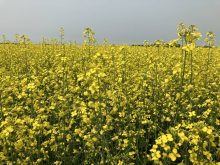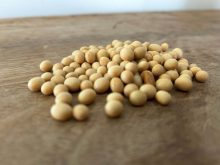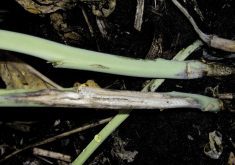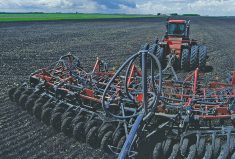Worries about China’s ban and other market woes have taken a back seat to weather issues for the province’s canola growers.
The biggest challenge for many is getting the crop off before snow permanently covers their fields, said Alberta Canola general manager Ward Toma.

“They can handle snow coming and going, but snow setting in for the winter; it just seems that much more challenging for everybody,” he said.
Those short on bin space or who want to market canola now shouldn’t have problems finding delivery opportunities as crushers are looking to buy, he added.
“I think right now there are no real issues with the crushers,” said Toma. “They were expecting new-crop canola to start showing up off the fields in September, and that didn’t happen. They still need to meet their commitments.”
But producers should shop around.
“Everybody should be talking to their buyers and getting updates on quotes from crushers about what is going on,” he said. “Crush demand is really good, so there are really good oil sales.
Read Also
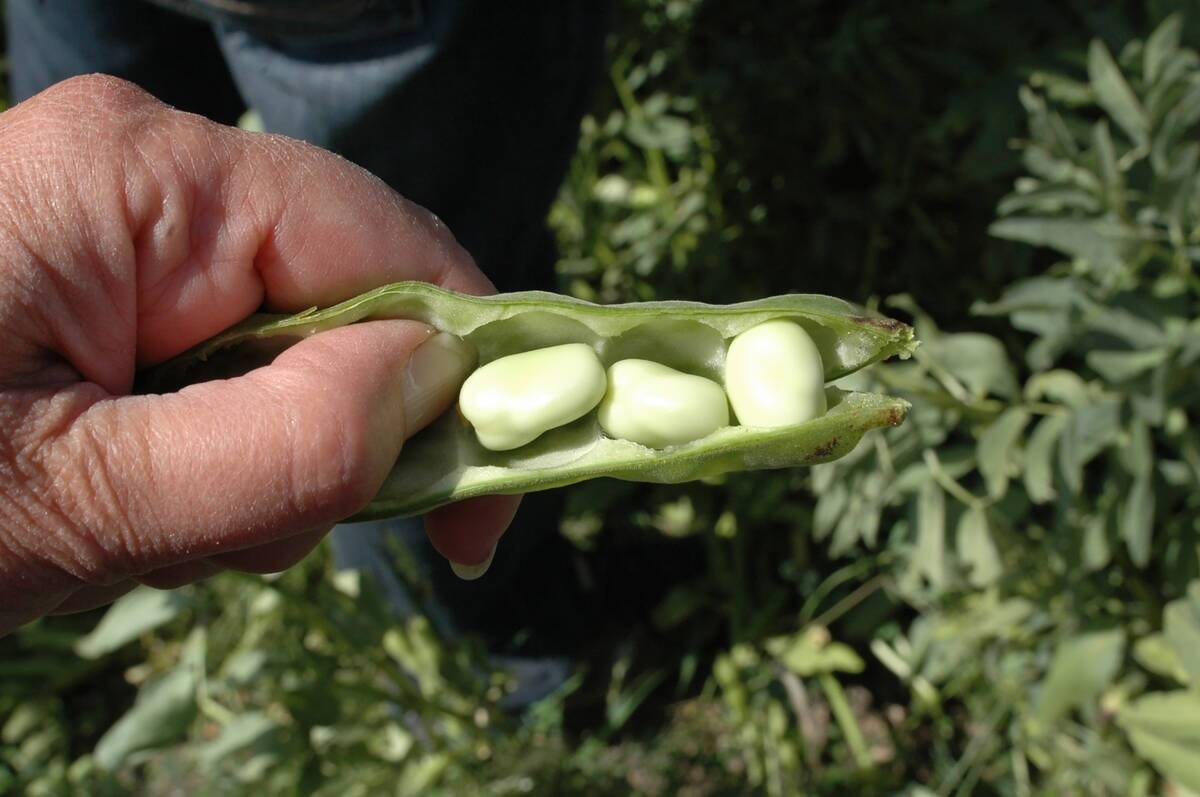
New crop insurer policy enables easier startup for faba beans
Agriculture Financial Services Corporation updated its normals for faba beans, which may open the door for more Canadian producers to feel comfortable growing the pulse crop in the future.
“They should (also) be talking to the (grain) companies, because some companies are pretty active in the seed export markets, so there might be opportunities there.”
Drought hurt yields in the south but many areas seem to have come through challenging growing conditions.
“I’m hearing reports that the rest of the province has an average or above-average crop,” said Toma. “We had a cooler summer, so flowers stayed, and that is going to help.”
Aside from China, demand is high and other markets are buying.
Some people may be buying more bins and storing more on farm, but Toma said he isn’t sure how widespread this is.
“Stats Canada has been talking about increased stocks carried over,” he said. “In some regions, some guys haven’t had a chance to move last year’s crop, so some people may have had to increase storing. I’m not sure it will be hugely widespread.”
In northern and central Alberta as well as in the Peace Country, farmers are drying a lot of their grain.
“A lot of dryers got put in, given what happened over the summer and the degree of wet that we have,” he said. “It’s been a moist harvest.”
That means another year of high fuel bills for many. However, producers won’t have to pay the carbon tax on their natural gas bills as the new United Conservative government scrapped the levy on May 30.






